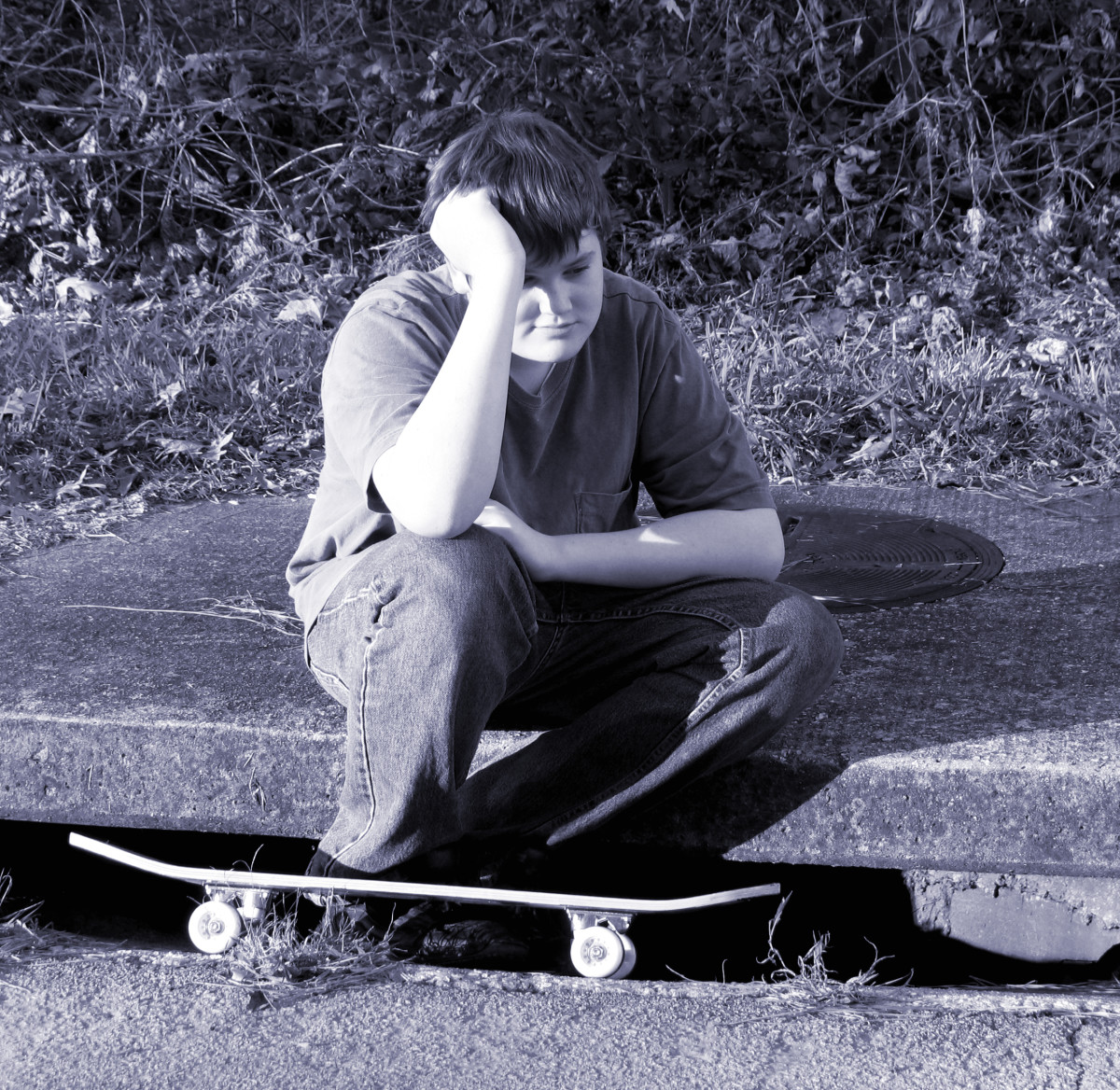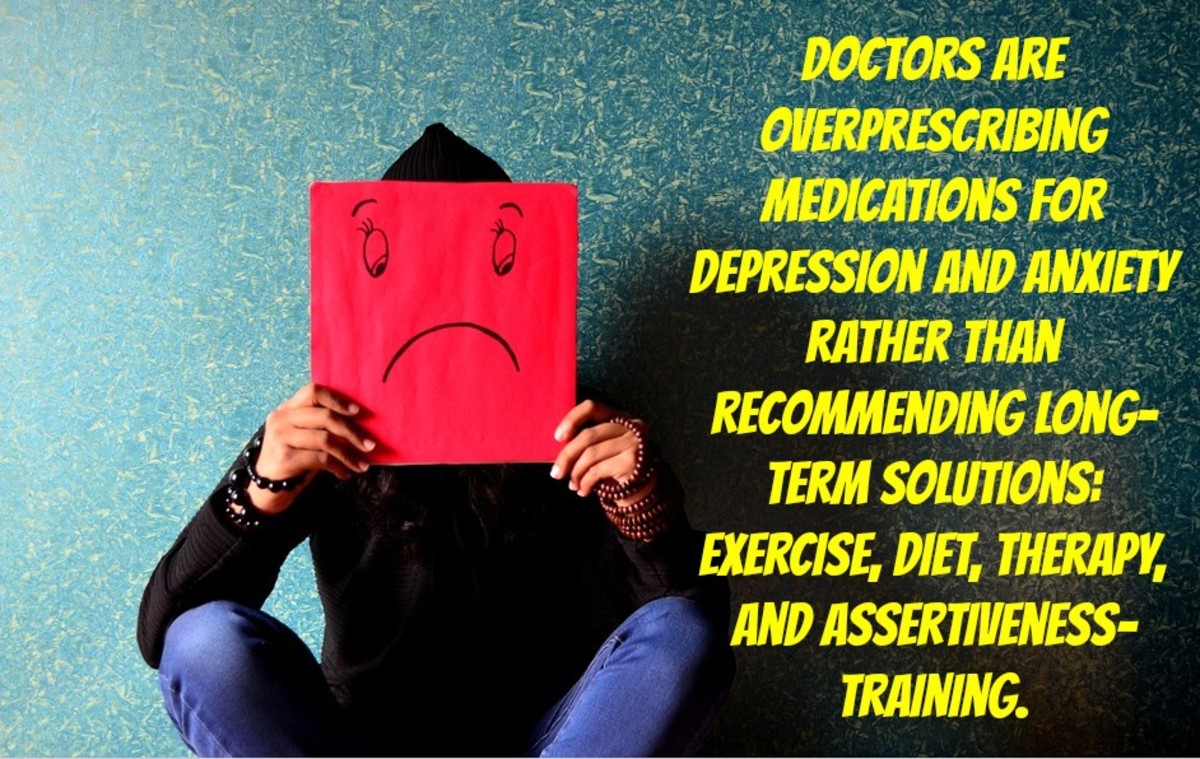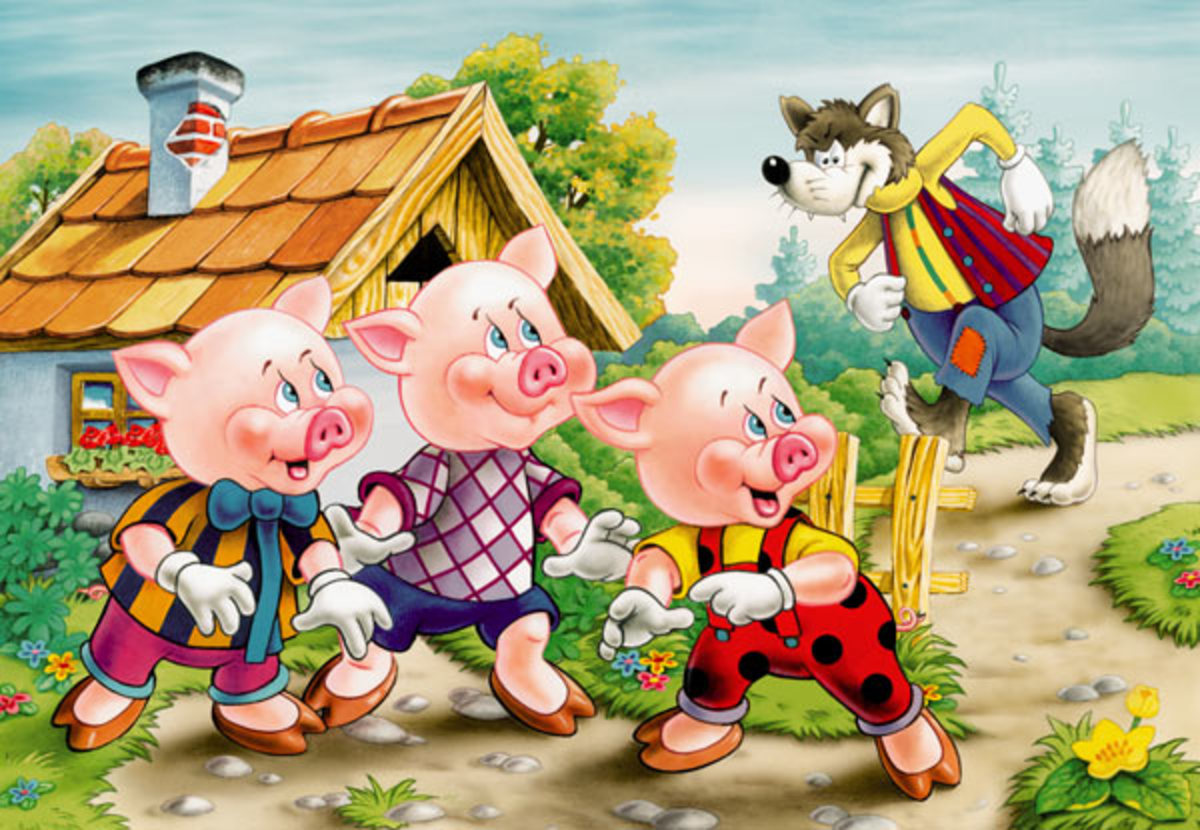Is Social Anxiety A Disorder?

It is for some people.
Social Anxiety Disorder is a psychological condition that cripples people's ability to socialize at all. It is a real disorder that can be treated with medication and therapy -- best in combination, any decent therapist or psychiatrist will tell you that statistically, medication alone is at best a stopgap unless the patient has a strictly chemical disorder.
I think it may be overdiagnosed though -- and that's where the therapist can be helpful, because a good therapist should be able to spot it when there's good external reason for the anxiety.
There's one test a person can apply for themselves about social anxiety disorder that's as simple and common sense as testing for alcoholism by drinking half a glass of wine. If you can drink half a glass of wine, stop there, put the rest away and not even think about it, going on to something else like watching a movie or eating cake or whatever, then you're not an alcoholic. You're someone who might enjoy a French eating style of half a glass of red wine a day to reduce heart problems.
Here's the test.
Sit down and sort out all the social situations you feel anxiety in, and look at the stressors involved. That's the psych term for Things That Bug You.
If it really is Social Anxiety Disorder, you can be going to social occasions with people who genuinely like you and have a lot in common with you, doing activities you love, and still get a lot of panic attacks for no reason at all. That is the definition of mental illness -- it's when reactions are irrational and not related to their real-world context.
The real kicker and the thing that gets me about mental illness is that it gets used to stigmatize anyone who doesn't fit into any number of social situations that are cultural, highly conformist and repressive. If you don't fit in, there's something wrong with you. You must be sick if you don't enjoy going to parties, getting drunk just for the sake of getting drunk or going to bars where you don't actually talk to any of the people around you but just get potted.
My son in law is an anthropologist.
I've been into psych most of my life, partly because I never fit in at all in the context I grew up in and was curious about how people worked. Partly, largely because as a writer I wanted to understand human beings and write about them. Psychology is only one way of looking at people. It's only one way of looking at human conflicts either -- and it can get very skewed if every problem anyone has in life gets defined as being an internal problem they have, whether or not it has any external basis.
My son in law opened my eyes to a whole different way of looking at people and social situations and a whole new set of terms. Disconfirmation -- it hurts. It's how it feels if everyone at the party is looking at you like you crawled out from under a rock. Or worse yet, all turning away and trying to pretend you're not there so they don't have to make eye contact. Or talking over you very fast while ignoring what you said, because they don't want to hear it.
Patterns of living. Standing back from things like materialism and seeing it more as a status display, not all that inherently different from chimps yelling or gorillas beating their chests. The money and things, the brand names and stuff, are all ways of showing off and getting social approval. Most of the stuff would be overpriced and may be useless without that social approval.
A friend of mine online complained about people constantly pressuring to conform -- to "act your age", to go to parties all the time, get drunk just for the sake of getting drunk when not shopping for designer clothes.
Getting drunk at parties where there's no depth to the conversation is a catharsis. It evens everything out. It's letting go of the tension built up from constant negative criticism and by making it all very simple, setting a custom that you don't have to do anything to get social approval but keep raising the glass till you throw up. Then everyone laughs.
Chart off some things. How many times during the day do you get criticized by someone? What is the criticism about? Keep that record for a week, just jot everything down. Not as the "get back at you" list but just the "What happened?" list. It'll help show who's doing it and why.
Did the person who criticized you most get sadistically happy about it anytime you made a mistake or did something that could be criticized? Social bullying is socially acceptable in many, many American social groups. What my friend described was bullying -- was social pressure to get into something they didn't want to.
That pattern of bullying and victimizing is so endemic that in affinity groups where the organizers and moderators police against it, newbies rave over how warm the group is and how safe they feel. People from other countries get boggled at the level of "Mind games" that Americans put up with every day.
And stress related diseases are epidemic. This kind of aggravation gets treated as background -- as normal. People are supposed to just put up with it and then think it's somehow something wrong with them that they don't have a thick enough skin about criticism -- yet who can enjoy life when they're constantly under social attack?
It means that bad bosses and workplaces never lack for people who need the job or want the money, too. You can buy an emotional punching bag just by offering a job. You can keep that person in your employ just by alternating praise and threat and jacking them around so much they don't know what to do to please you -- only that their survival is now linked to pleasing you. It's no surprise when that's so easy and happens so often that a great many people wind up in toxic situations they never expected and wind up bringing toxic patterns home to everyone they live with.
Conformity is a huge pressure in America. You're supposed to eat, think, worship, dress and act like everyone else according to stereotypes of age, gender, ethnic background and occupation. Then be interchangeable. This makes it very easy for other people to know how to treat you, whether to look down at you or pick on you or whether to toady up to you. The aggressive competitors playing King of the Hill are no healthier or happier, they all have higher-ups in the hierarchy playing mind games on them too and have a deep gut awareness of how rotten it would be if they lost even a notch of status. How fast their untrusted rivals would trample them on the way up.
Conformity is also a defense.
If you keep your head down, never mention anything individual, just parrot what everyone's saying and swim with the middle of the school, then you are less likely to be the one bullied. You get to be left alone for the most part. It's living in fear unless you so genuinely fit the stereotype that you don't notice it's there -- because people are reading you accurately and predicting your reactions to things accurately.
Most people don't.
Schools do a lot to create that conformity. The bullying system in schools establishes that group defense against bullies and the number of kids that live in constant terror of physical or emotional attack is -- the majority. Most adults too if they stop to recall what it was really like will remember times they couldn't eat or sleep because they were continually stalked or picked on by sadistic kids.
It sets up for the pattern of everyone continuing to act that way in the workplace whether they get a smidge of authority to abuse or get stuck at the bottom of the ladder being everyone's punching bag. It gets taken for granted that life's like that -- that work is rotten, that you're stuck doing something you hate for most of your working hours only to get enough money to survive and keep up your socially expected lifestyle.
Break the pattern and it does threaten the social authority of the bullies. Break the pattern and it might mean the whole little tyranny falls apart. This does happen inevitably in the worst abusive workplaces or under the worst supervisors. One really competent employee will recognize that he or she could do a lot more elsewhere and get paid better for it on top of that, or that the money isn't worth it, tells off the bully and walks out.
Then half the shop walks out too and the bully's left standing there with orders unfilled and nothing getting done and a need to spend the next month interviewing desperate people for the next set of victims.
Some companies turn that into a pattern that's profitable, because they only have to pay entry level wages and the turnover keeps ticking along steadily. I've read articles where that's discussed as a strategy -- either promote them or fire them, wash out anyone but those who are going to rise in the organization, it's cheaper to pay newbies.
So if that's a hideously common pattern of culture, then maybe social anxiety isn't irrational at all. But if it isn't irrational, what can you do about it?

Solutions are Personal
What you do to resolve your social anxiety, especially if it does turn out to be external context rather than inner psychological problems, is make real changes in your life. What those changes are have to be personal.
What works for me may sound idyllic to you or it may sound as obnoxiously boring as those parties did to my friend. I'd suggest first, if it's getting to the point that you'd rather be alone than spend time with hostile, critical people and have identified that it's hostile critical people causing the problem, it would help to take some time alone to relax and think about it. In whatever context makes you the most relaxed and happiest.
This could be something like a religious retreat. I used to go to Unitarian Universalist retreats, it was a cheap weekend camping trip twice a year in a pretty area. Half the folks at the retreat hung out at the main hall doing activities like crafts or various classes, mostly not on religious topics at all but just entertainment classes, the rest wandered off into the woods with a good book and lawn chair or went hiking or did things alone and there was no pressure to participate a lot or not.
I'd get very social on those because my disabilities make it physically hard to get out of the house and meet people. So having a lot of people I'd like to meet all gathered in close proximity in the main hall was a real break, I would sign up for any classes or activities I enjoyed and socialize all weekend. I volunteered at it too, that was also good for socializing -- hanging out in the kitchen helping half a dozen people prepare a meal was sociable versus being alone to fix my own food most of the year.
Those overly stressed by too much social contact and too much hostility in it find that being alone in a physically spacious, natural environment can be really relaxing.
Or maybe that's the appeal of bars where people don't talk to each other -- the custom being that no one talks to anyone, you're socially safe and no one's going to criticize what you chose to drink or ask why you're drinking. It just didn't provide the relaxation I wanted because I was usually lonely from not being able to get out and meet people interested in the things I was -- books, roleplaying games, creative activities like art or novelwriting, philosophy and politics especially with a liberal, inclusive, accepting slant.
Find the situation where you feel safest, where you feel most comfortable, and think about what you really want your social life to be. What's missing? What's overabundant and not worth doing?
Those choices are yours. For all its miserable conformity and lack of a culture -- my anthropologist son in law pointed out that America is not a culture, it's a superstate -- it is still a free country. It is not illegal to go dress up like an elf and spend the weekend bashing other people with foam boffer swords if that's your thing. Or to spend the whole weekend hanging out with other fishing nuts talking about tackle and reels.
What's emerged in this country is a pattern of Affinity Groups. People who are happy in their lives usually rely more on affinity groups -- clubs and associations based on a common interest in a topic or activity -- than in family activities or religious activity, although a religion can easily become an affinity group if it's your main focus of interest.
Revival movements include both modern paganism and fundamentalist conservative Christianity. They're more than a political slant and a religious view. They include a lot of social activity that is not strictly speaking, religious. They have ice cream socials and church barbecues and charity events. The pagan groups have crafts gatherings and environmental charity events and pot luck suppers and the whole gamut of religious-social activity the fundies do. The customs and beliefs are different -- but they both serve the purpose of structuring free time with safe predictable enjoyable social contact.
Members of a revival movement expect and sometimes get uncritical acceptance from the group as long as they can keep up with the activities and are passionate about the group. It fills a real emotional need.
I think some atheist groups are revival movements too in this way, certainly they can sop up your time with political get togethers and discussions of morality that aren't based on religion or belief in anything supernatural.
Many large cities are a patchwork of little ethnic neighborhoods that are essentially small towns nested together stitched to several unrelated ones at their borders. People trust their neighborhood and nothing outside it. Those neighborhoods wind up with a lot of shared activities and often are immigrant communities. Fine if you happen to have a reasonably pure ethnic background and grew up in a neighborhood like that.
If you didn't and don't, then the source of a broader social life than just your spouse/lover and children winds up being affinity groups based on your real interests, the things you actually enjoy doing.
In terms of workplace, it's important to keep a journal and figure out if that's the problem. Sometimes it is. Sometimes a person whose life is otherwise well balanced and who is doing a job that by the nature of the work would be satisfying just winds up drawn into some bully's personal little abuse kingdom and doesn't know why everything else in life went south. Solution, look for a job with better working conditions and be choosy. Interview the interviewers about what the atmosphere around the shop or workplace is like. Meet people at the job before applying.
You're more likely to get it if you know someone anyway, so why not start socializing in advance of a job search and by observation figure out which company is best for your personality -- where you have the best fit.
You as an individual have many more choices than the organizations, companies, groups, churches do. It's like a reef. These groups and companies are all sitting still in one place filtering whatever comes along on the current. You can swim over and sample and choose where to settle down. The best basis for that is to find where you fit in without changing who you really are.
If you have to lie to make someone like you, they don't like you. They're just someone human who likes what they do and got lied to. If you have to lie to them to make them love you, it's the same thing but heavier and it's more heartbreak on both sides to find out that no, they really don't love you, once they know, they are sick at heart for losing the fiction they did come to love.
One thing I did pick up in all the psychology stuff was Social Zones. It's important to prioritize them and understand them, to be a happy human being it helps to have good relationships going at all levels.
Family/intimate is your absolute closest friends for years whom you'd trust with your life and family members whose presence is a joy, who are genuinely supportive and trustworthy, who treat you well and are there for you if anything goes wrong. Abusive family members do not belong to this circle even if by kinship label they feel entitled to it. Merely obnoxious or boring family members can just be shifted to outer circles without too much damage, treating the relationship with as much depth as it really has can help a lot.
Next is friends -- people you know pretty well, people you trust, people you like and spend a fair amount of time with on purpose, enjoying their company.
Next is coworkers/acquaintances. This would be people you socialize with often by circumstance but wouldn't have chosen to spend time with and this may include distant relatives too, if you see them or contact them at long intervals for family events. They might have nothing in common with you beyond the connection they have and it's best not to assume you know anything about them beyond what you do.
I suppose one could also chart a zone of "people to actively avoid" where you know there's going to be conflict just from who they are -- this is where the office bully that's on your level belongs or the neighbor who's seriously annoying, where you're not suffering any major loss or difficulty avoiding them but both your lives are a lot easier that way.
It is a whole lot easier on both to avoid them than to criticize them and try to pressure them to become someone you'd enjoy their company. They can't and won't do it, it would be unhealthy for most of them if they did, you don't know all their circumstances and if you did you still might not understand their world view. Better to just leave them alone.
Somewhere in these important relationships, most Americans also have fictive ones. Television is a member of the family in most families. I know for years and years I'd get real sick and use it as a substitute for human contact. Just leave it on in background if I was lonely to hear people talking, not really paying attention. Or get involved in a show in one of the genres I liked.
This surrogate can be unhealthy to substitute for real contact, because those people on television are fictive. They don't actually exist. They don't know you or care about you, they're never happy to see you, and on top of that your connection with their lives is interrupted every two minutes by a demanding loud interruption -- watching television is like trying to read a book while a toddler is screaming for attention.
The commercial breaks have a cumulative social stress that can wear down anyone's patience -- but if what you do to relax is watch TV to have surrogate people who aren't personally criticizing you just being there and not noticing you, then those interruptions that have noticed you and are directly inviting you to open your wallet or use your credit card carry way too much emotional impact. No matter how sophisticated you are and inured to sales resistance, the effect of repetition can get real nasty.
You might see two dozen restaurant commercials and be unmoved to go out to any of them, but the constant presentation of treat foods will possibly send you to the kitchen to overeat. Food's social. A lot of human activities are. If someone did a two minute commercial that showed someone barfing, the number of viewers who'd vomit just at the sight and sound is enormous.
So television is a stopgap, though it can also provide a topic of convenience if you mention very popular shows, quote their jokes, connect with others who like them. A safer topic than "do you like painting with oil pastels?" or "Did you ever date someone a third your age too?"
Social anxiety disorder is a real mental illness. But social anxiety can come into anyone's life even if you're psychologically strong and healthy, well oriented, have a good connection with a good social support network and just ran into a really disruptive situation.
Moving creates a problem. People move often for job reasons or other reasons, most peolpe seem to relocate every five years according to something I read. This leads to any number of problems because you don't have the long term friendships and local connections to know who you can trust and who to avoid, who to confide in and who never to mention anything that might be remotely embarrassing or painful or you will suffer for it.
Most people are dealing with the stress of getting used to a new context. I moved so much that I got pretty good at it, but even so, a lot of the loneliness in my life was caused by those moves and by my mobility limits.
I've tried in this hub to keep to the anthropological view -- to avoid judging one revival movement or affinity group over another, not to tout my own particular affinity groups and activities as the best. You're who you are. You might have a great time doing something that would bore me to tears and vice versa. You might think that spending a weekend with a bunch of Unitarians doing plein air painting and crafts would be miserably boring and much prefer to spend it at a Nascar rally or a drunken party with a lot of ex-college-buds or some gardening club get together or hiking up a mountain that I couldn't get to the start of the trail.
What I'm suggesting is that if you're not happy with your social life or lack of social life or social anxiety, to sit down and sort out why on a common sense basis. Ask what's missing. Ask what's there that you want to get rid of .Ask why you've got anxiety about social events and which ones cause that anxiety and why.
For years and years, for decades even, people around me were very concerned about me because I seemed to suffer extreme depression, apathy, social anxiety and a host of other psychological problems that I don't have. I even tried antidepressants for a while on samples from a psychiatrist only to find they did absolutely nothing -- then I got accurate diagnoses for several physical disabilities and diseases that include two or three multiple reasons to have chronic fatigue.
I could be doing something I really enjoyed, run out of steam, fall asleep or get apathetic about it right in the middle because I was on my feet too long in interesting conversations and got physically exhausted. One thing that helped show that was looking over the times in my life I'd been more socially active -- and finding out that in the South, where there's more of a tendency to sit around on porches for long conversations in comfortable chairs with arms, I was much more socially accepted than in Northern states where conversations at parties are peripatetic. No one sits down for long, everyone physically circulates.
Works fine online if I don't get out of my chair, it can't work that way in real life, ever. So I'm happier living in Southern physical customs and know that social fit involves both the person and the context being happy with the arrangement. Plenty of good people who would've liked me a lot in the North never got to know me because I couldn't get up to literally follow the conversation and still make sense rather than just overtired babble.
So life taught me the hard way not to accept the first diagnosis that gets thrown on any discontent, however extreme and uncomfortable it is. (DIscomfort is a medical term that includes "screaming agony on up to suicidal level" but is intended to include every type of sensation that can produce that, including itching so bad that people rip their skin off.). If one approach does not work, look at it from a different angle. Social anxiety is something that can have internal causes, external social causes and for me, external physical causes that are purely logistic.
I think though, that there's a general stereotype that anyone sad or exhausted or nervous must have some internal psychological reason for it, that everyone's neurotic. I'm not sure how mental illness got into the same category as the common cold, but it seems to have. The stigma has shifted. Some people treat therapy or medication as punitive -- and disconfirm the person's feelings and troubles by suggesting they need medication or therapy or both, because what they want is the therapist to make that person conform to their group's expectations.
Groups have identities as distinct and different as the people in them. In a healthy culture, about 5% of the people don't really fit and would be happier in a different way of life. In this country, 25% of the people wind up with clinical depression and that is way too high a statistic. To me that means something's wrong on the level of how the groups behave, not that all of a sudden five times as many people have chemical health problems or scars of traumas.
Even if some of the traumas are so common they get disconfirmed and treated as if they should not have any consequences, like childhood bullying and first adolescent love/heartbreak. They're real and people grieve them and are not happy and functioning at peak content with their lives and fitting their context when those traumas happen..Why is the suicide rate among teenagers so high?
i think that culture clashes and bad social fit are endemic. That they're as big a problem to American health as the dietary problems of living on Big Macs and sugary shakes, have as much bitter consequences to life and health as the bad eating problems. Why are so many people addicted to comfort eating if there aren't endemic social pressures so unendurable that they need comfort to face them again?
It may not be pathological at all -- and it may be more solvable than it looks if it isn't.
Your life is yours. Ultimately you are the person who needs to decide what to do to make it happier and healthier -- believe me, no one else knows the situation as well as you do. I'm only suggesting you ask yourself some questions and see what you get for answers.
If the answer is that you fit in well with everyone around you but wind up having unaccountable mood swings and panic attacks unrelated to any external prompt, then yes, seek medical help and therapy. Social anxiety disorders can be caused by brain chemistry and ruin the lives of people who'd otherwise get on fine with their context. But if that's not the problem, try to find out what it really is instead of beating your head on the psychological brick wall the way I did. No amount of therapy ever straightened my crooked bones or made it possible for me to "circulate" at parties.






